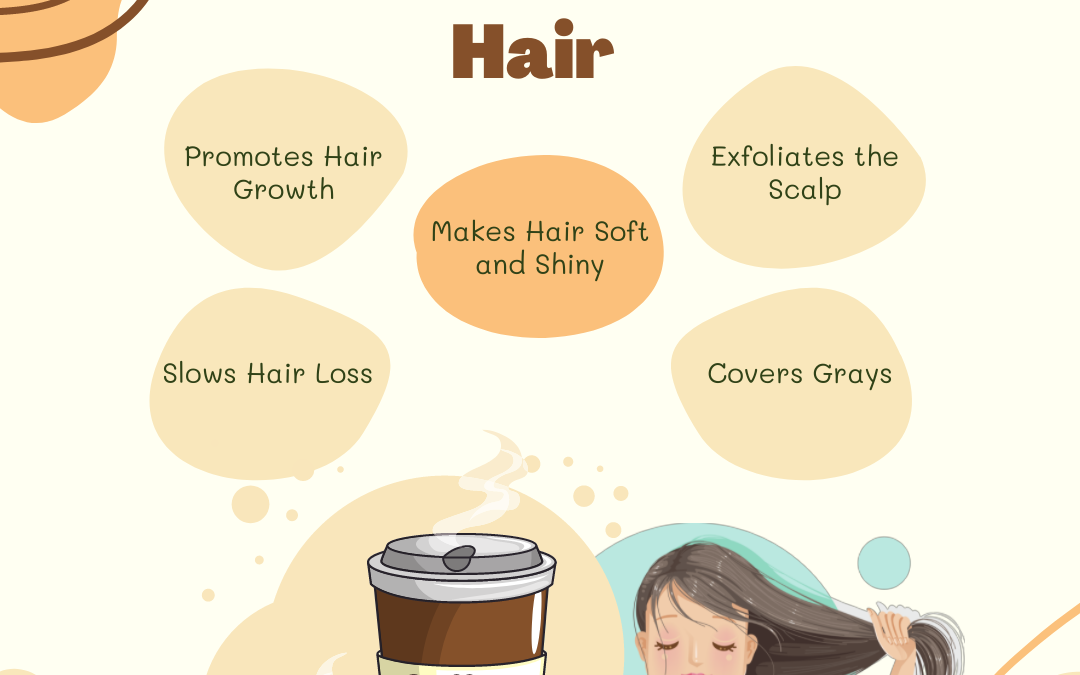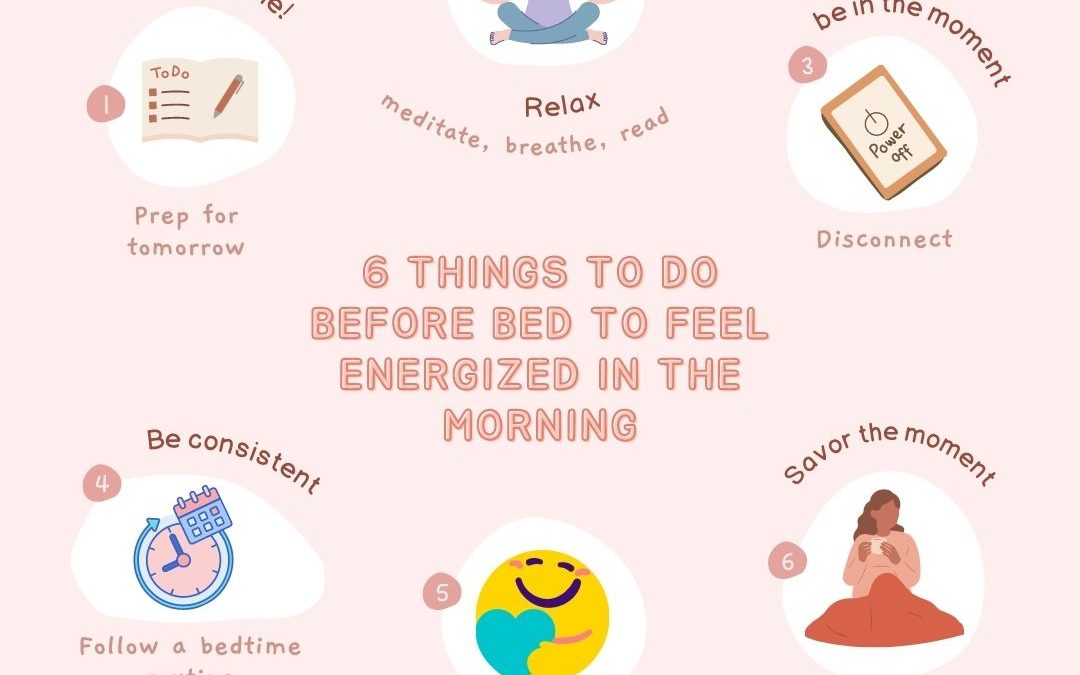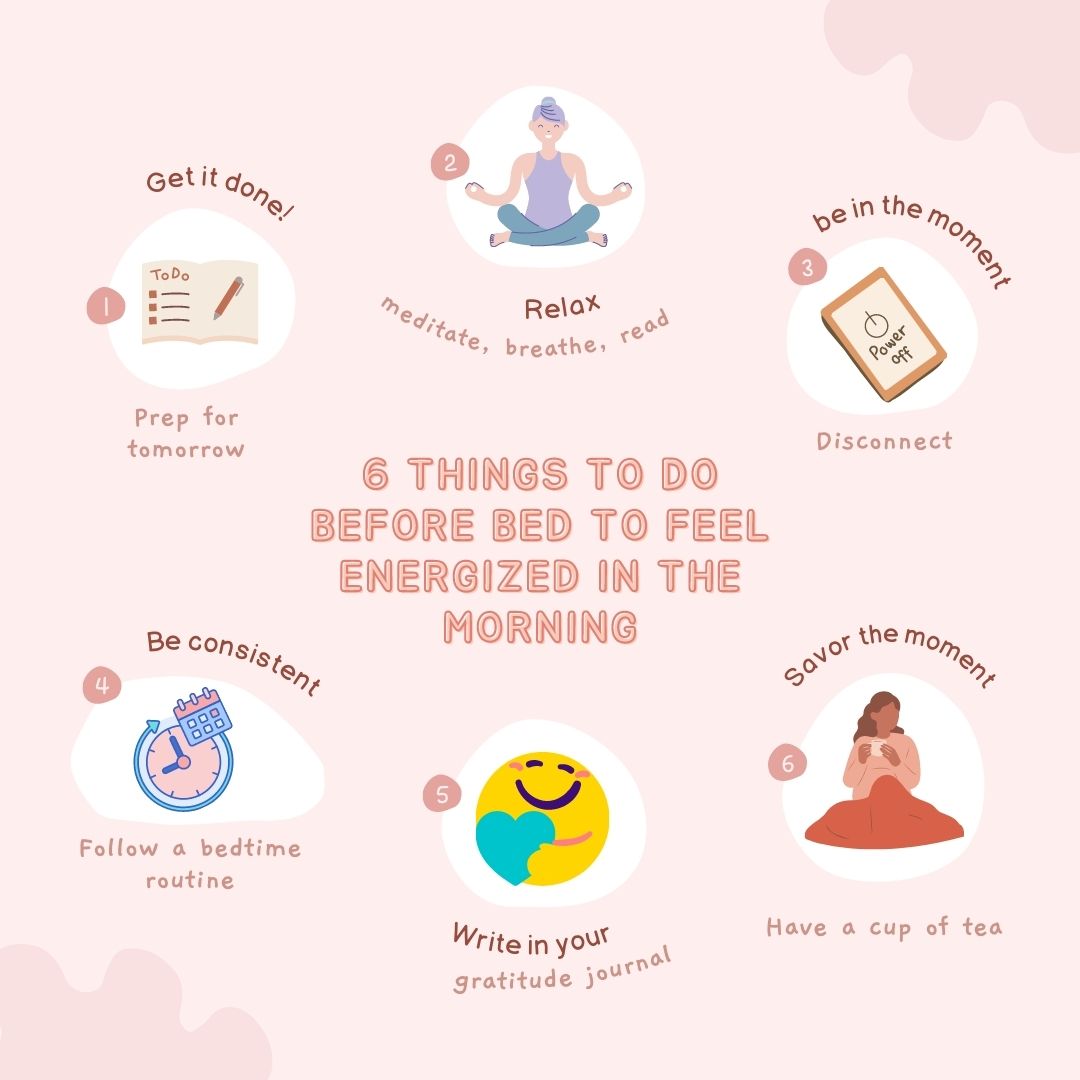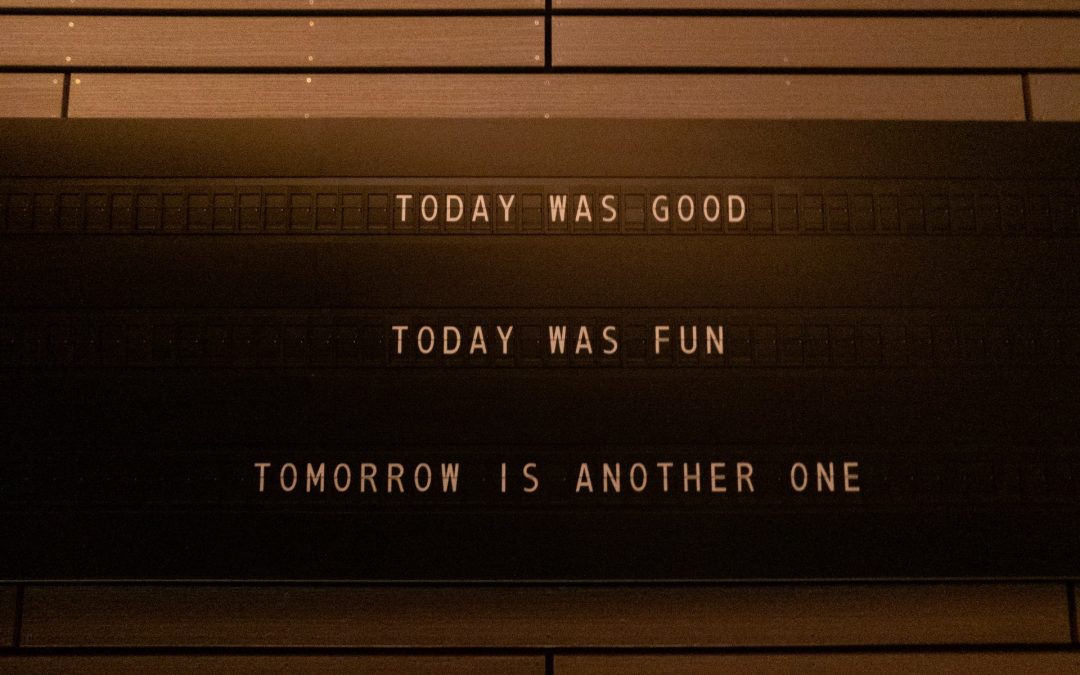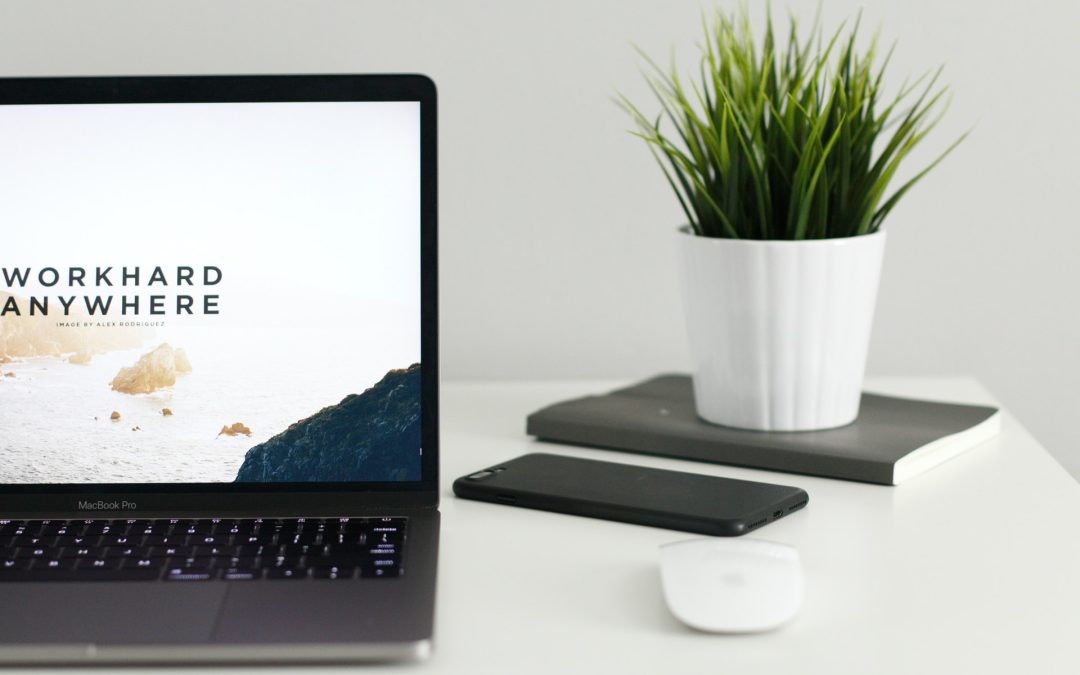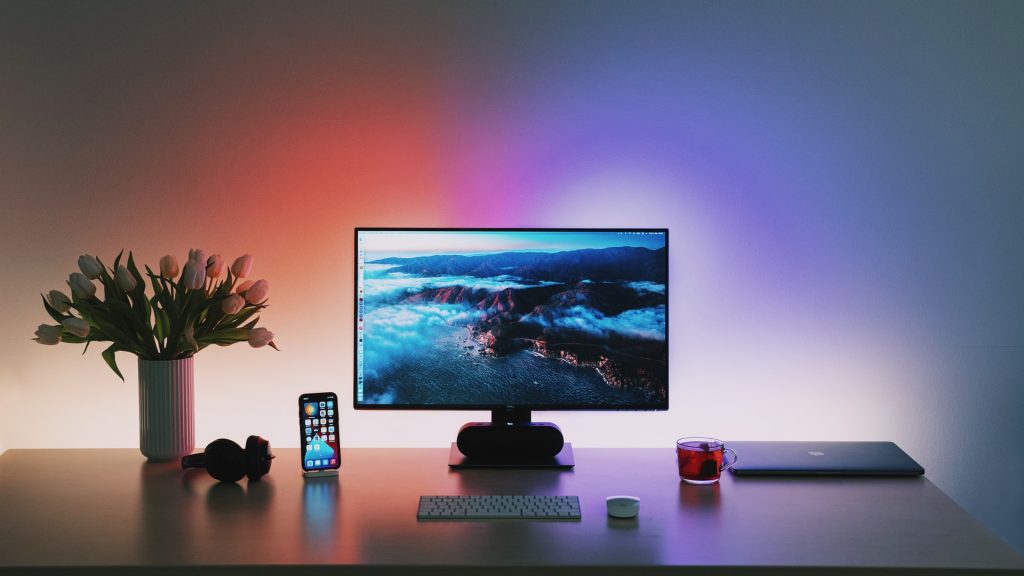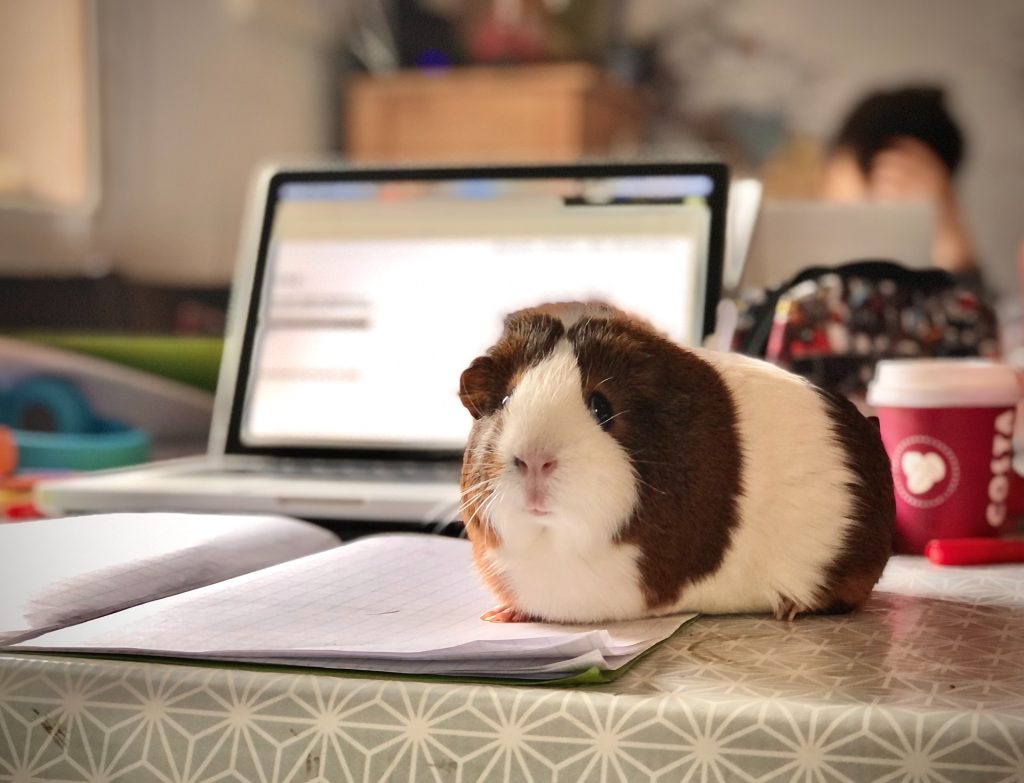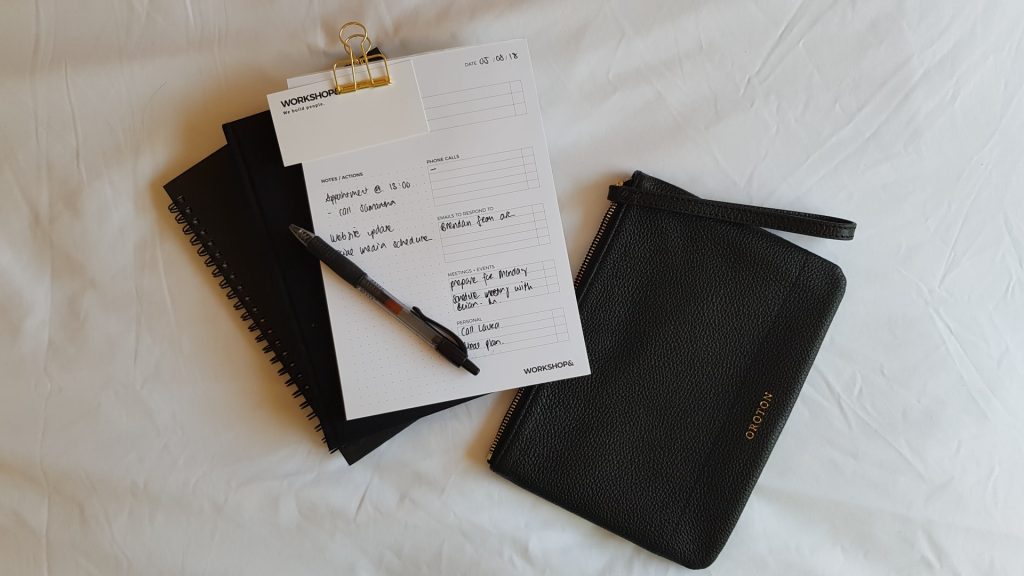
by Rene Emery | Last updated Mar 18, 2023 | Health and Wellness |
Millions of people around the world start their days with a cup of coffee. It’s one of the most popular drinks in the world, and it offers a surprising number of benefits for your health. But did you know there are coffee benefits for hair, too?
Here are some great reasons to add coffee to your hair care routine and how to do it.
The Surprising Coffee Benefits for Hair
So, what are the benefits of coffee for hair? Why should you add this world-famous drink to your hair care routine?
Here are some of the many benefits of coffee.

1. Promotes Hair Growth and Stops Hair Loss
Have you always dreamed of having long, luscious locks? Coffee may help you reach that goal and improve hair health. It can even help stop hair loss, too.
Research has found that the caffeine in coffee is what helps stimulate hair growth, stops hair loss and helps improve hair health. How?
- Caffeine helps block DHT in men’s hair follicles
- It helps elongate the hair shaft to create wider, longer hair roots
- It extended anagen duration (the hair growth stage)
- It has a growth-promoting effect on female hair follicles, too
Caffeine is a stimulant, which means that it can also help boost circulation to the scalp and hair follicles. Improved blood flow to the scalp can help your hair grow faster and make it stronger, too. The end result? Thicker, fuller-looking hair.
2. Exfoliates Your Scalp
You’ve heard of using coffee grinds to exfoliate your skin. A natural coffee scrub can buff away dead skin cells and help improve circulation.
But you can also use coffee scrubs on your scalp for the same effect. Exfoliation is so good for the skin, but we often neglect our scalps.
A simple coffee scrub made of old coffee grinds – and nothing else – can help:
- Get rid of dead skin cells on your scalp
- Promote blood flow to your hair follicles
- Leave your scalp feeling refreshed and rejuvenated
Just a word of warning, though – this scrub can get messy! Make sure that you rinse several times and don’t forget to shampoo. If you have a scalp massager brush for the shower, use it – it will help get the grinds out of your hair.
Try using cold water to rinse to help seal the cuticle before you style.
3. Makes Your Hair Softer and Shinier
If your hair is dull and brittle, coffee may bring it back to life. A simple coffee rinse can make your hair softer and smoother. It can give you shiny locks, too.
The caffeine in coffee won’t strip your hair of its natural oils. In fact, it has the opposite effect. Coffee can help your hair retain moisture and leave a natural sheen.
Of course, all of that extra blood flow to the scalp will feed your hair more nutrients and oxygen for overall healthier hair.
The flavonoids (i.e., antioxidants) in coffee can help promote hair regeneration. And the hair-smoothing properties of coffee can even help tame frizz. So, give coffee rinses a try if you have curly hair and struggle with frizz and detangling.
4. Kick Grays to the Curb
Did you know that coffee acts as a natural hair stain? Regular coffee rinses can help cover up grays to leave your hair looking youthful and resilient.
Of course, this trick really only works with dark hair. For best results, use a dark roast coffee or espresso. Their rich colors will have a more dramatic effect on your hair color.
Green Coffee Benefits for Hair
When most people talk about using coffee in their hair or skin routines, they usually refer to using roasted coffee beans. But what about green coffee? Are there any green coffee benefits for hair?
Yes! Green coffee’s antioxidants help fight free radicals and keep your hair looking and feeling its best.
And green coffee oil has antimicrobial properties that can detox your scalp while:
- Reducing itchiness
- Preventing dandruff
- Promoting hair growth
Why is green coffee oil so great for your hair? It’s loaded with:
- Essential fatty acids
- Vitamin E
Its moisturizing properties can help keep your hair soft, smooth and hydrated. Just make sure that you use a high-quality green coffee oil.
What About Coffee Oil Benefits for Hair?
We talked a little bit about green coffee oil benefits, but what about regular coffee oil? Coffee oil does have many benefits for your hair, and the convenient oil form makes it so easy to apply.
Here’s what coffee oil can do for your hair:
- Promote hair growth and stop hair loss (thanks, caffeine!)
- Seal in moisture for hydrated, shiny hair
- Smooths and tames frizz
- Softens and prevents split ends
- Balance scalp pH
You can find coffee oil products online that are meant for hair (they’re sometimes called “coffee seed oil”). For scalp treatments, look for products that come in squeezable bottles with nozzles. These bottles make it easier to apply the oil directly to your scalp and roots.
You can also apply coffee oil to damp hair before styling to moisturize and protect your hair. Take care to only use a small amount. A little goes a long way with coffee oil – or any oil for that matter. Just a few drops will help tame frizz and seal in moisture.
Drinking Coffee Benefits for Hair
You know that applying coffee to your hair and scalp has benefits, but what about drinking it? Can your morning cup of java also make your hair look healthy and beautiful? Yes.
Coffee is rich in antioxidants. For many people, coffee is their primary source of antioxidants in their diets.
All of those antioxidants help improve hair growth by helping maintain collagen in both the body and the connective tissues of your hair follicles. They also help protect scalp cells in your blood vessels to encourage healthy hair growth.
So, when you drink coffee, you’re helping improve your hair from the inside out.
Final Thoughts
As it turns out, drinking coffee is good not only for your soul – and sanity – but for your hair, too. Use the tips above to incorporate coffee into your hair care routine and enjoy yet another excuse to enjoy your morning cups of coffee.

by Rene Emery | Last updated Jul 10, 2022 | Health and Wellness |
Do you wake up in the morning feeling like you need a nap? We’ve all been there, but if this sounds like your daily morning routine, it may be time for a change. What you do before bed may be sabotaging your sleep and your mornings. So, what are some good things to do before bed every night? What can you do at night to feel more energized in the morning? Here are some helpful tips.

6 Positive Things to do Before Bed to Feel Energized in the Morning
1. Prepare for the Next Day
To wake up feeling energized and ready to tackle the day, start prepping for the day the night before. Try to get everything ready for the day before you hit the pillow.
- Lay out your clothes for the next day.
- Set your coffee maker to start brewing before you wake up.
- Make and pack your lunch, so it’s ready to go.
- Put your bags near the door, so you don’t forget anything on your way out in the morning.
- Create a to-do list of things you need to tackle for the day, starting with the most important tasks.
Taking a little time to prepare for tomorrow will save you stress and time in the morning. That alone will help you feel more energized.
2. Find Relaxing Things to do Before Bed
Do you have trouble falling asleep at night? You’re not alone. About 70 million Americans have chronic sleep problems. While the issue is complicated, part of the problem is that people are just too anxious or wired to fall asleep.
Setting aside time to do calming things to do before bed can help you wind down and get into the right state of mind to fall asleep and stay asleep.
Meditate
A nightly meditation practice can help you relax, forget the stresses of the day and quiet your mind. All of that chatter, noise and worry disappear when you learn how to master meditation, and that can help you sleep better at night.
Research has found that mindfulness meditation can help improve sleep quality. Over the long term, these improvements are on par with those seen with sleep medication. There are many benefits of meditation anyway, so you have nothing to lose by giving it a try.
If you’re not sure how to get started, check out the video below for an excellent guided sleep meditation.
Sleep Talk Down Guided Meditation: Fall Asleep Faster with Sleep Music & Spoken Word Hypnosis
Take a Relaxing Hot Bath
It’s hard to beat the calming effects of a warm bath. Play some soothing music, light some candles, add a bath bomb and slip into a state of total relaxation.
Make it part of your nightly ritual to help you unwind and get ready for bed at night.
Do a Little Nighttime Yoga
A little nighttime yoga can melt your stress and tension away, making it easier to sleep at night. The key is to choose a practice that’s slow and easy-going, like the one below.
Bedtime Yoga | 20 Minute Bedtime Yoga Practice | Yoga With Adriene
Practice Deep Breathing Exercises
Deep breaths can help slow your heart rate and calm your nervous system. If you’re feeling stressed or anxious about something, deep breathing exercises give you something to focus on and help bring you back into the present moment.
Try this super easy breathing exercise to help bring you into a relaxed state before bed:
- Breathe in for four seconds.
- Hold your breath for four seconds.
- Breathe out for four seconds.
- Hold your breath for four seconds.
Keep repeating this slow breathing practice until you fall asleep naturally or get into a more relaxed state.
Listen to Soothing Music
Music is a powerful thing. It can pump you up for a workout, it can make you sad, and it can also help you feel more relaxed.
Research has found that music around 60 beats per minute helps the brain synchronize with the beat, and this causes alpha brainwaves. Alpha brainwaves appear when we’re relaxed.
You can find soothing, relaxing music here to help you drift off to sleep at night.
Read a Book
Many people have trouble falling asleep because their brains are too stimulated. Reading may help with that. In fact, reading can help lower cognitive arousal, de-stimulate your brain and even help you stay asleep longer.
Just be careful not to overdo it, and stick to books with lighter storylines. Reading something from the horror genre may just give you nightmares.
3. Disconnect for the Night
I think we can all agree that we spend too much time in front of screens every day. And we’re all guilty of scrolling or binge-watching a Netflix show before bed. But screen use before bed is probably ruining your sleep.
Screens produce blue light, which is the part of the light spectrum that’s most active when we sleep. But when you stimulate this part of your brain, you make it harder for your body to produce melatonin and “shut down” your brain for the night. In other words, it messes with your sleep cycle.
Research has found that two or more hours of screen time at night can seriously hinder the release of melatonin, making it even harder to fall asleep.
Disconnect at least an hour before bedtime. Turn off all devices and screens and do something else – like one of the calming activities above.
It’s hard to resist the temptation to check Instagram one more time before your head hits the pillow, but it’s not doing your sleep or your health any favors. Use your before-bed time to come back to the present moment, relax your mind and prepare for the next day. Make it a daily ritual and consider this time to care for yourself and your mental health.
4. Create a Consistent Bedtime Routine
Creating a healthy bedtime routine can help you fall asleep faster and stay asleep for longer. If you go to bed at the same consistent time every single day and follow the same routine, eventually, that routine will become a signal to your body that it’s time for bed. You’ll naturally feel tired at bedtime.
Your nighttime routine can include:
- Doing your nightly skincare ritual
- Brushing your teeth
- Using an aromatherapy diffuser
- Listening to calming music
- Meditating or deep breathing
Focus on adding calming and relaxing activities to your evening routine to get your body and mind into that relaxed state.
Also, make sure you set a consistent sleep schedule. That means going to bed at the same time every night – even on weekends.
5. Write in a Gratitude Journal
Gratitude is a pretty amazing thing. Research has found that writing in a gratitude journal for just 15 minutes each day can help you worry less at night and enjoy better quality sleep.
The idea is simple:
- Write down things you are grateful for in a journal
- Practice this every single night before bed
The practice helps you stay focused on the positive things in your life and forget your troubles before you lay your head down at night.
Studies have found that people who practice gratitude are generally less depressed and much happier in their lives. Keeping a gratitude journal can help improve your mental health over the long term, which will make you more excited to wake up in the morning and take on the day.
6. Drink Herbal Tea
A hot, soothing cup of herbal tea can help you fall asleep and stay asleep at night. Many herbs naturally help you relax and even induce sleep.
Some of the best herbal teas for bed include:
- Valerian root, which has long been used as a sleep tonic. Valerian root can help reduce stress, headaches, anxiety and heart palpitations. Why is this root so effective at helping you sleep? It has two natural sedatives in it: sesquiterpenes and valepotriates.
- Chamomile. People have been using chamomile to help with relaxation and sleep for centuries. Like valerian root, the flower contains active compounds that have tranquilizing effects, like apigenin.
- Lavender, which is well-known for its relaxing effects.
- Magnolia bark, which has been used in Traditional Chinese Medicine for centuries as a sleep aid. The bark contains a compound called honokiol. This compound binds to GABA receptors to help you feel more relaxed and make it easier to fall asleep.
Try drinking your tea about an hour before bed to give it time to kick in. Use honey instead of sugar or drink it plain to help your body stay in a relaxed state.
Follow the tips above to improve your quality of sleep, make your morning routine less stressful and help you feel more energized. Once you get into the habit of sleeping well and waking up refreshed, you may just find that you can sleep less and better.

by Rene Emery | Last updated Feb 19, 2023 | Health and Wellness |
In the age of information overload, it’s hard to stay focused while studying. It doesn’t matter whether you’re in high school, college or grad school – blocking out the noise can feel like an uphill battle.
But with the right routine, environment and plan, you’ll find it much easier to concentrate and stay on task. Here are 12+ tips to help you stay focused while you study.
How To Stay Focused While Studying for Exams
If you have an exam coming up, you probably have limited time to study. Whether you’re cramming the night before, pulling an all-nighter or studying days ahead of time, you can use these tips to help you stay on track.
1. Avoid Distractions
Distractions are the biggest threat to your concentration, and they are everywhere.
- Your phone
- Your friends
- Your TV
- Your pets
It’s easy to get distracted when you have so much going on around you all the time. Do everything you can to kick distractions to the curb while you study, like:
- Put your phone on airplane mode to avoid getting social media notifications or phone calls. Better yet – turn off your mobile device. Set a no cell phones rule for your study period.
- Studying in a room without a TV. Sit outside if the weather permits and it’s a peaceful place.
- Keep your pets outside of the room, or encourage them to settle down and relax while you study.
- Let your friends know that you’ll be unavailable until you’re done studying.
Make it easy to avoid distractions and you’ll find that you’re better able to stay focused on studying for your exam.
2. Set Goals
It’s not enough to just say, “I’m going to study for the test.” If you want to stay focused and succeed in your study sessions, you have to set goals.
- What do you want to accomplish during your session?
- What material do you want to cover?
Make sure that your goals are:
- Specific
- Measurable
- Time-specific
- Attainable
For added motivation, give yourself regular rewards for achieving your study goals.
It’s much easier to stay focused when you have an objective to achieve and a plan to get there.
3. Create a Study Ritual
Staying focused can be challenging, but you may find it much easier to stay on track if you have a study ritual. These are tasks that you do every time you study, and they can help you get into the right state of mind for each session.
A ritual may look like this:
- Head to your usual study spot at home (or wherever you normally study).
- Set up your space. Gather all of the material you will need for your session.
- Block out all distracting websites on your browser.
- Set your phone to airplane mode or silent.
- Set up any timers that you may be using for your study period.
- Grab a glass of water and a snack.
Creating a study ritual doesn’t have to be complicated. It just has to help you get into the right frame of mind for studying.
4. Have a Dedicated Study Space
Your study environment will play a big role in your ability to stay focused. Creating a dedicated space for studying will make it easier to cut out distractions and just concentrate on the task ahead.
Ideally, your space should be:
- Quiet. Avoid studying in the kitchen or other busy areas (like a coffee shop) where there’s bound to be noise and other distractions.
- Comfortable. Studying at a desk or table will give you some space to spread out. Avoid studying somewhere that’s too comfortable, like the couch or a bed. You don’t want to fall asleep in the middle of your study session.
- Well-lit. Low-light environments will make you sleepy and strain your eyes. Use a bright desk lamp or an overhead lamp to keep your space well-lit.
- Clutter-free. A clean, organized space will make it easier to stay focused. Clutter can be distracting and even stressful, so keep your study space tidy.
- Yours. There’s nothing wrong with personalizing your space. Hang inspiring photos, choose colors you love and make your space feel like yours. The goal is to create a study space that you want to be in.
These simple tips can help you stay focused when studying for an exam, but you can incorporate the tips below into your routine, too.
How To Stay Focused While Studying Another Language
Learning a new language is hard. But no matter what combination of learning methods you use, you still need to study. Dedicating time to learning the language is the only way you’ll reach any level of fluency.
But staying on track isn’t easy, especially if you’re already struggling with your studies.
If you’re having trouble staying focused when learning a language, here are some tips.
5. Slow Down
It’s harder to learn a language as an adult. Part of the reason why we struggle with grasping a new language is that we’re trying to cram as much as we can into every single session. And unfortunately, our adult brains tend to over-analyze things, which only makes it worse.
If you want to stay focused and actually retain the information you’re learning, then do yourself a favor and slow down.
Take the time to really absorb and understand each new thing you’re learning, whether it’s a new word or a new grammar rule. It’s much easier to stay focused when you’re not trying to rush from one thing to the next.
Take your time, and only focus on one thing at a time during your study sessions.
6. Study in Short Spurts
Many people assume that you have to study for hours every day to learn a language. You can spend that much time on learning (if you have it), but not everyone can really keep their focus and interest going for that long.
To stay focused, study in short spurts. Aim for at least 20 minutes per day total. That can be broken up into two or three hyper-focused study sessions, or all at once. The key is to break the materials down into manageable chunks.
Short sessions may help with your concentration and keep you from feeling overwhelmed.
7. Gamify Your Studying
It’s easy to stay focused and on track when you enjoy what you’re doing. With language learning – and for many other subjects – it can be challenging to make studying enjoyable. Gamifying your studying may help.
There are lots of language learning apps out there that help you learn and make it fun, too. They also incorporate different approaches, which makes it even easier to concentrate on your studies.
Some great language learning apps are:
Apps like these are designed to keep you engaged, so you’ll enjoy learning.
How To Stay Focused While Studying at Night
Are you a student focusing on studying at night? It can be difficult to stay on track after a long day of classes and whatever other plans you had for the day. Here are some tips to help you stay focused.
8. Create a Study Plan
If you can only study at night, it may be helpful to create a study schedule. If you have a plan, you’ll be able to stay focused on whatever it is you need to accomplish on your to-do list.
Make a plan for what you want to cover and accomplish, and make sure that you stick to that plan. Block out time in your evening that’s just for studying and nothing else.
9. Listen to Classical Music
Studying at night can be challenging because you’re battle exhaustion and mental fatigue. But listening to classical music may help you stay focused and regain that mental energy you need to get through your session.
Studies have found that listening to classical music can help your brain absorb and retain information more easily. Music can engage your brain in a way that helps you pay more attention and make sense of the material that you’re learning.
Another study found that classical music helped older adults perform better on processing and memory tasks.
So, crank up some Bach and hit the books to improve your focus and the outcome of your study sessions.
10. Make Sure Your Study Spot is a Clean Space
Here’s a quick way to help improve your focus while studying at night – clean things up.
Research has found that clutter and disorganization can drain your brain’s cognitive resources. You’re studying at night when your brain is already tired, so it’s even more important for your space to be clean and tidy.
Clutter is a visual distraction that can lead to cognitive overload and hinder your memory. So, take the time to clean your space before studying to keep your brain in the game.
11. Take a Mental Break
It’s tempting to push yourself to study longer and harder, especially if you’re studying at night and just want to get it done.
But taking regular breaks is important for focusing and retaining the information you’re studying. Schedule in a 5-minute break here and there, or better yet, take a 15-minute break if you’re studying for a long period of time.
Research has found that taking at least a 5-minute break will give your brain a chance to refresh and increase your focus.
How To Stay Focused in College
Study time is even more important in college when your future and career are on the line. But how do you stay focused when you have so many other things going on? Here are some tips.
12. Get Regular Exercise
Make exercise a priority if you want to stay focused during your study sessions. Research shows that short bursts of physical activity can help improve concentration for up to one hour.
Staying active throughout the day can help you stay on track during your study sessions. Try hitting the gym or going for a walk or run before you sit down to study.
13. Get Plenty of Hours of Sleep
Sleep? When you’re in college? Who has time for it?
I know it’s hard to make sleep a priority in college, but it should be one. It’s difficult or impossible to stay focused when you’re dead tired. Concentration goes out the window. Sleep deprivation can severely impair your ability to stay focused, so do yourself a favor and get plenty of shut-eye if you plan to study.
15. Use White Noise to Block Out Distractions
Finding time to study is hard enough. It’s even harder to stay focused if you’re studying in a noisy dorm room or another loud place.
If you can’t find a quiet place to study, grab your earbuds and listen to some white noise. White noise can block out background noise, making it much easier to focus on the task ahead.
Final Thoughts
These tips will help you learn how to stay focused while studying, whether you have an upcoming exam, are learning a new language or are in college. With practice and consistency, you’ll find it much easier to stay on track during future study sessions.

by Rene Emery | Last updated Feb 25, 2023 | Health and Wellness |
Having trouble mastering meditation? You’re not alone. Sitting quietly with your thoughts isn’t easy. But mantra meditation can make it easier to get into that calm, still state while helping you be more positive.
For those of you who don’t know, mantra meditation is the practice of repeating a word or phrase and focusing all of your attention on it. All of that repetition and hyper-focus can help shut down those wandering thoughts.
Mantras are part of Hindu and Buddhist traditions, but mantra meditation doesn’t have to be a religious or spiritual practice. It can simply be a way to improve your well-being and wellness.
Mantra meditation is different from mindfulness meditation, but the benefits are similar.

7 Benefits of Mantra Meditation
1. Increased Focus
Like other forms of meditation, mantra meditation can improve your focus. In fact, the entire practice is all about focusing on a word or phrase (your mantra).
Each time your mind wanders, you bring your attention back to the mantra. Over time and with practice, it becomes easier to stay focused on the mantra. Essentially, you’re strengthening your focus muscle every time you practice.
2. A Calmer, Clearer Mind
A mantra meditation practice can help you achieve a clear, calm mind. In fact, there is some evidence that it may even help improve your brain health.
In one study, people with memory problems practiced a type of kundalini meditation involving chanting. After eight weeks of practice, participants saw an improvement in cognitive function and cerebral blood flow, which may help:
- Reduce anxiety
- Boost your mood
- Give you energy
- Improve memory
- Give you peace of mind
Research from 2017 may explain why mantras have these psychological benefits. Mantra repetition synchronizes the left and right sides of the brain, which helps produce relaxing alpha brain waves.
Other research shows that repetition of a word or phrase can quiet the mind and prevent it from wandering. Likewise, mantras can keep you grounded and keep you from worrying about the past or future.
3. Improved Breath Control
Meditation, in general, can help improve your breath control, but mantra-based meditation has a slight edge. Chanting a mantra creates a rhythm, and your breath naturally follows that rhythm.
It takes a focused effort to synch your breath with your mantra. But, over time, your practice can help you better control your breath.
All of that slow, controlled breathing will also help you feel more relaxed.
4. Less Stress
In general, taking time out to relax and sit quietly can help reduce physical stress. Meditation takes this one step further by helping you stay in the present moment. When you’re not thinking about past or future stress, you can enjoy the moment.
How effective is mantra meditation at reducing physical stress?
In one study, HIV patients practiced transcendental meditation, a type of mantra meditation. Their daily meditation practice helped reduce intrusive thoughts while improving their quality of life.
With daily practice, this type of meditation can give you peace of mind while helping reduce psychological stress and chronic stress.

5. Positive Outlook and Emotions
Mantras are powerful things. Repeat them daily, and you can actually change your mindset. Practice it in group meditation and everyone will feel the positive energies you’re putting out there.
We are the stories that we tell ourselves. Each time you recite a mantra in your daily life, you’re rewriting your story. You’re replacing negative thoughts with positive ones. Mantras can be so effective at changing your outlook that therapists and wellness coaches use them themselves.
Let’s say that you’re feeling anxious today. During your mantra meditation session, you may focus on effective mantras for anxiety, like:
- This too shall pass
- I am strong
- All is well
- I am loved
- I am safe
Each time you repeat your mantra, whether it’s out loud or in your mind, you are changing your thought pattern and can change your outlook for the day.
There are many ways to use this effect to your advantage. For example, adopting a daily morning mantra meditation can help you start your day with a positive outlook and productive mindset.
6. Improved Communication Skills
Mantra and even mindfulness meditation aren’t usually associated with communication skills, but they can indirectly help you express yourself more clearly and with care.
Daily meditation practice can help you maintain a calm mind and perceive the world around you without judgment. It’s not as easy to get riled up by disagreements, confrontations and unexpected life changes.
When you approach problems without judgment and with a clear mind, you can communicate more clearly and effectively.
Final Thoughts
The practice of mantra meditation has many awesome benefits, from focused attention to less anxiety and a more positive attitude.
Best of all, many people find that mantra meditation is the easiest meditation technique to master because your mind has something to focus on.
If you want to experience these benefits for yourself, create a list of your favorite mantras and give this type of meditation a try today.

by Rene Emery | Last updated Feb 19, 2023 | Health and Wellness |
In a world of distractions, staying focused can be a challenge. Even in the workplace, it’s hard to escape social media, text messages and other distractions vying for our attention. Unfortunately, focus isn’t something that comes naturally or easily. Like many other things in life, it’s a skill that you need to learn and improve.
But where do you start? Try these 14 helpful tips on how to stay focused on work.
How to Stay Focused at Work – 14 Helpful Tips
1. Create and Organize Your To-Do List
It’s easy for your mind to wander and get lost in distractions when you don’t have a to-do list for the day. At the end of each workday, create a task list for the next day that includes everything you need to accomplish.
When creating your to-do list, start with the most important and time-consuming tasks. Tackling critical tasks and the most time-consuming tasks first will make the rest of your day feel like a breeze. This concept is known as Eat That Frog.
Eat That Frog! is a book written by Brian Tracy that provides helpful tips on how to stop procrastinating and get more done during the day. Tracy suggests doing the most challenging task of the day first so that the rest of the day feels easy and manageable.
We all have that one thing that we dread doing each day, and that dread makes us procrastinate and drag out the day – whether we realize it or not.
By creating a to-do list with the most difficult and important tasks first, you may find it much easier to stay focused and get more done.
You can create a good old-fashioned to-do list on paper, or you can use an online task manager like:
Your team may also have a collab or project management solution that allows individual team members to create their own task lists.
2. Ditch the Multi-Tasking
Many of us pile our plates so high that we wind up trying to juggle multiple things at once. When you’re in the moment, multi-tasking may seem like you’re getting more done, but in reality, you’re probably taking longer to complete each individual task.
Research shows that trying to do more than one task at once can really hurt productivity, especially if they are complex tasks. The more complex the tasks, the more time you lose when switching your focus.
If you have a habit of multi-tasking, it may be making it harder to remain focused at work. Rather than trying to do it all at once, try staying laser-focused on one task at a time. Remember that to-do list you created? Go through each item one by one. Try to avoid phone calls, text messages and other distractions while you’re accomplishing each task.
When you can put all of your focus and effort into one task, it will be much easier to get the job done faster and more efficiently.
3. Plan Your Day
Creating a to-do list is a great first step and can help you stay focused on just one task at a time. But it’s also helpful to plan out your day.
For example, you may work for three straight hours before taking a 20-minute break or stopping for lunch. Break your day into chunks and plan what you’re going to get done during each chunk.
When you have your days mapped out, it’s much easier to stay on track. And if you do lose focus or fall off the bandwagon, you know exactly where you left off and what you need to do next.
Planners are helpful for mapping out your day, but you can also use Google Calendar or any other online calendar to plan your days.

4. De-Clutter Your Workspace
Looking for tips on how to stay focused working from home? Start by looking at your workstation. Is it cluttered or disorganized? If so, it’s time for a little spring cleaning.
Even if you’re working at an office, co-working space or out on the road, it’s important to make sure that your workspace is clutter-free and organized.
Why? Because clutter can lower your productivity and even lead to procrastination or avoidance strategies. In other words, clutter is distracting. For some of us, it’s downright stressful.
The brain likes order. When your space is disorganized and chaotic, it drains your brain’s energy and makes it harder to focus. Research has found that removing clutter from a home or workspace makes it easier to process information, focus and get things done.
Getting organized is easier than you think. Here are some tips:
- If your desk is cluttered with files and paperwork, invest in a filing cabinet or file folder holder. Desk organizers can also store papers and files neatly on your desk.
- Limit the knick-knacks on your desk to just one or two.
- Keep the items that you use most often within reach of your dominant hand.
- Use shelving to display personal items and free up desk space.
- Store pens and pencils in one convenient place.
Ditching the clutter and organizing your space will make it easier to stay on task and get things done more efficiently. If you’re having trouble letting go of things, try going slowly and removing just one item at a time until your space becomes more manageable.
5. Create a Productive Home Workspace
Many people are looking for tips on how to stay focused while working from home. Even if you’ve been working from home for a while, you may be struggling to be productive. It’s easy to get distracted by chores or other people in the house.
If you’re working from home, it’s important to create a space that promotes productivity instead of hindering it.
Here’s how:
- Establish a dedicated workspace in your home. This could be a separate room or a designated corner of your kitchen, living room or bedroom. Having a designated space for work will make it easier to get into that mindset and stay on task.
- Keep it quiet. Choose a peaceful space in your home to work. Noise and distractions will only make it harder to get things done. For example, working at the kitchen table when the kids or your partner are getting ready to leave for the day will make it nearly impossible to stay focused and get things done.
- Make sure your workstation is clean and organized.
- Give yourself a view of nature if you can. If you can’t work near a window, try adding some greenery.
- Allow in as much natural light as possible.
Your home work environment should help you stay productive and focused. Try a few of these tips or sit down and consider your ideal work environment. Create a space that you look forward to coming into and one that helps you get into that focused, “flow” state.
6. Set Clear Goals
If you have tasks or projects that you need to complete, make sure that they are clear. Clarifying your goals and daily tasks can help you stay on point and create a plan of action.
Your goals should:
- Be clear, specific and concise
- Have an expiration date
- Have a way to track your progress
Whatever you need to accomplish, make sure that you set clear and specific goals. Doing so will give you a clearer picture of what needs to be done and how you’ll get there.
7. Schedule in Distractions
It’s virtually impossible to completely eliminate distractions from the workplace. Whether it’s chatting with co-workers or getting engrossed in that cat video your friend sent you, distractions are everywhere.
To set yourself up for success, schedule in distractions. Use some of your break time to check your phone, call a friend or hop on social media. For this to work, you need to be dedicated and strict.
8. Establish Boundaries
If you want to stay focused at work, it’s essential to establish boundaries. By setting boundaries, you allow yourself to stay on task without distractions, like phone calls, a chatty co-worker or emails asking for an update on another project.
Here are a few ways to establish healthy boundaries in the workplace:
- Say “no” to things. If you continue to pile more onto your plate, you’ll never get anything done.
- Block off time on your schedule for tasks. During that time, ditch the distractions and stay focused only on the task at hand.
- Communicate your values and priorities. Maybe you’ve decided to stay focused on important tasks from 2-3 pm each day. Let your co-workers know that you will be unavailable for phone calls, emails, or chats for that hour. You may still need to be available for your boss or unexpected emergencies, but you’ll eliminate unnecessary distractions.

9. Keep Your Web Distractions in Check
If you spend your day working at a desk from an internet-connected desktop or laptop, it’s not always easy to stay focused. After all, you have a million distracting websites right at your fingertips. Of course, it doesn’t help that we all have smartphones that can just as easily connect us to those distracting websites.
So, how do you keep your web distractions in check?
- Turn off Wi-Fi – if you can. You can’t get lost in a sea of web distractions if you can’t access the internet.
- If you need an internet connection for work, you can use tools like Cold Turkey or SelfControl to block certain websites while you’re working. Just create a list of websites to block, and you’re well on your way to working distraction-free.
It’s much easier to stay focused and on track when you’re not constantly tempted to find a distraction online.
10. Limit Social Media Use
Worldwide, people spend an average of 2 hours on social media. It may not seem like a big deal to check Facebook, Instagram or Twitter while you’re doing a menial task like answering emails. However, those few minutes add up throughout the day. And if you get stuck down a rabbit hole, you may find yourself on social media for 10-20 minutes at a time.
If you want to be a more productive worker, limit your social media use at work.
Some of you may have the discipline to do this without any help. For the rest of us, there are blockers that will limit your access while you’re at work.
Some of the most popular social media blockers are:
- Freedom. Available for Windows, Mac, iOS, Chrome and Android, this app can be used on virtually any internet-connected device. The only downside is that it has a monthly subscription fee.
- RescueTime, which works as either a browser plug-in or an app. RescueTime tracks the amount of time you spend on sites, programs and documents. But it can also block certain websites for a set period of time. Plus, you get access to other productivity tools like goal-setting, and it integrates into Calendar or Slack.
- FocusMe is another app that works on Windows, Mac and Android. It allows you to create your own routine for web browsing, work and more. You can even set productivity goals. Of course, it also blocks distractions. Even if you try to delete an app or stop the timer, FocusMe will continue to block distractions.
If you’re struggling to stay off social media during the workday, one of these apps may help.
11. Start A Meditation Practice
If you’re having trouble staying focused at work, start a meditation practice. Meditating first thing in the morning can help you get started on the right foot and with the right intention.
Over time and as you master the practice, you may find that it’s much easier to stay focused without needing additional tools or technology to block distractions.
In fact, research has shown that even brief periods of mindfulness meditation can help improve attention. And Italian neuroscientist Giuseppe Pagnoni’s study found meditators are better able to control wandering thoughts and prevent them from spiraling out of control.
Pagnoni looked at brain scans of experienced meditators and those who had never meditated. Compared to novices, those who were experienced meditators had increased stability in the ventral posteromedial cortex (vPMC) area of the brain, which is linked to wandering and spontaneous thoughts. In other words, they were better able to stop distracting thoughts from becoming all-consuming.
In the workplace, being able to control your wandering thoughts would be an advantage.
In general, living more mindfully can help you stay more focused while potentially curbing stress and anxiety.
12. Stay Active
Most of us lead sedentary lives. We work desk jobs, and we drive everywhere. All of that pent-up energy can make it hard to stay focused.
Exercise is crucial to both your mental and physical health. In addition to helping maintain a healthy weight and body, exercise can help you stay more focused at work.
Research has shown that moderate and high-intensity physical activity can help improve concentration, memory and problem-solving. You can get these effects from just one workout, and the results last for up to two hours.
Along with better focus, you can enjoy higher energy levels.
Exercising before work can help you take advantage of the focus-boosting effects of exercise, but you only need a few minutes to see a difference. So, if you can’t get in a workout before you start your day, a brisk walk on your lunch break can help.
If you get 15-minute breaks throughout the day, you can also use this time to stay active and help boost your focus when you get back to work.

13. Break Down Big Projects into Bite-size Tasks
When a big project lands on your desk, it’s hard not to feel overwhelmed by it all. Those feelings of being overwhelmed can cause you to procrastinate and make it hard to concentrate on work.
To make more significant projects feel more doable, try breaking them down into bite-size tasks. You can do this by breaking the project down into:
From here, you can then break each one down into tasks. Start by:
- Identifying tasks
- Determining which tasks are priorities
- Setting deadlines for completing these tasks
By setting deadlines for your tasks, you ensure that your project moves along at a steady pace. At the same time, you feel rewarded and motivated each time you check a task off your list.
It becomes more manageable and less overwhelming when you break a big project down into bite-size tasks. Yes, the entire project may be a big undertaking, but you can certainly handle each individual task.
14. Make Sleep a Priority
A lack of sleep or poor quality sleep can make it hard to stay on track. After all, sleep deprivation makes you feel groggy and sluggish. Your reaction time isn’t on point, and your brain, essentially, turns to mush.
Research shows that sleep deprivation has a negative effect on cognitive function. So, when you try to stay focused on a task at work, it feels like you’re trudging through mud.
To stay focused and on task, make sleep a priority. Aim to get about eight hours of sleep each night, and do your best to wake up and go to bed at the same time every night.
Learn How to Get to Sleep on Time – Starting Tonight!
Final Thoughts
It’s not always easy to remain focused at work, especially if you have to deal with noisy distractions and a pile of tasks each day. These tips can help you learn how to focus on work, so you can get more done and waste less time.
You can also use these tips to stay focused with online learning!
In a world of distractions, staying focused can be a challenge. Even in the workplace, it’s hard to escape social media, text messages and other distractions vying for our attention. Unfortunately, focus isn’t something that comes naturally or easily. Like many other things in life, it’s a skill that you need to learn and improve.
But where do you start? Try these 14 helpful tips on how to stay focused on work.
How to Stay Focused at Work – 14 Helpful Tips
1. Create and Organize Your To-Do List
It’s easy for your mind to wander and get lost in distractions when you don’t have a to-do list for the day. At the end of each workday, create a task list for the next day that includes everything you need to accomplish.
When creating your to-do list, start with the most important and time-consuming tasks. Tackling critical tasks and the most time-consuming tasks first will make the rest of your day feel like a breeze. This concept is known as Eat That Frog.
Eat That Frog! is a book written by Brian Tracy that provides helpful tips on how to stop procrastinating and get more done during the day. Tracy suggests doing the most challenging task of the day first so that the rest of the day feels easy and manageable.
We all have that one thing that we dread doing each day, and that dread makes us procrastinate and drag out the day – whether we realize it or not.
By creating a to-do list with the most difficult and important tasks first, you may find it much easier to stay focused and get more done.
You can create a good old-fashioned to-do list on paper, or you can use an online task manager like:
Your team may also have a collab or project management solution that allows individual team members to create their own task lists.
2. Ditch the Multi-Tasking
Many of us pile our plates so high that we wind up trying to juggle multiple things at once. When you’re in the moment, multi-tasking may seem like you’re getting more done, but in reality, you’re probably taking longer to complete each individual task.
Research shows that trying to do more than one task at once can really hurt productivity, especially if they are complex tasks. The more complex the tasks, the more time you lose when switching your focus.
If you have a habit of multi-tasking, it may be making it harder to remain focused at work. Rather than trying to do it all at once, try staying laser-focused on one task at a time. Remember that to-do list you created? Go through each item one by one. Try to avoid phone calls, text messages and other distractions while you’re accomplishing each task.
When you can put all of your focus and effort into one task, it will be much easier to get the job done faster and more efficiently.
3. Plan Your Day
Creating a to-do list is a great first step and can help you stay focused on just one task at a time. But it’s also helpful to plan out your day.
For example, you may work for three straight hours before taking a 20-minute break or stopping for lunch. Break your day into chunks and plan what you’re going to get done during each chunk.
When you have your days mapped out, it’s much easier to stay on track. And if you do lose focus or fall off the bandwagon, you know exactly where you left off and what you need to do next.
Planners are helpful for mapping out your day, but you can also use Google Calendar or any other online calendar to plan your days.

4. De-Clutter Your Workspace
Looking for tips on how to stay focused working from home? Start by looking at your workstation. Is it cluttered or disorganized? If so, it’s time for a little spring cleaning.
Even if you’re working at an office, co-working space or out on the road, it’s important to make sure that your workspace is clutter-free and organized.
Why? Because clutter can lower your productivity and even lead to procrastination or avoidance strategies. In other words, clutter is distracting. For some of us, it’s downright stressful.
The brain likes order. When your space is disorganized and chaotic, it drains your brain’s energy and makes it harder to focus. Research has found that removing clutter from a home or workspace makes it easier to process information, focus and get things done.
Getting organized is easier than you think. Here are some tips:
- If your desk is cluttered with files and paperwork, invest in a filing cabinet or file folder holder. Desk organizers can also store papers and files neatly on your desk.
- Limit the knick-knacks on your desk to just one or two.
- Keep the items that you use most often within reach of your dominant hand.
- Use shelving to display personal items and free up desk space.
- Store pens and pencils in one convenient place.
Ditching the clutter and organizing your space will make it easier to stay on task and get things done more efficiently. If you’re having trouble letting go of things, try going slowly and removing just one item at a time until your space becomes more manageable.
5. Create a Productive Home Workspace
Many people are looking for tips on how to stay focused while working from home. Even if you’ve been working from home for a while, you may be struggling to be productive. It’s easy to get distracted by chores or other people in the house.
If you’re working from home, it’s important to create a space that promotes productivity instead of hindering it.
Here’s how:
- Establish a dedicated workspace in your home. This could be a separate room or a designated corner of your kitchen, living room or bedroom. Having a designated space for work will make it easier to get into that mindset and stay on task.
- Keep it quiet. Choose a peaceful space in your home to work. Noise and distractions will only make it harder to get things done. For example, working at the kitchen table when the kids or your partner are getting ready to leave for the day will make it nearly impossible to stay focused and get things done.
- Make sure your workstation is clean and organized.
- Give yourself a view of nature if you can. If you can’t work near a window, try adding some greenery.
- Allow in as much natural light as possible.
Your home work environment should help you stay productive and focused. Try a few of these tips or sit down and consider your ideal work environment. Create a space that you look forward to coming into and one that helps you get into that focused, “flow” state.
6. Set Clear Goals
If you have tasks or projects that you need to complete, make sure that they are clear. Clarifying your goals and daily tasks can help you stay on point and create a plan of action.
Your goals should:
- Be clear, specific and concise
- Have an expiration date
- Have a way to track your progress
Whatever you need to accomplish, make sure that you set clear and specific goals. Doing so will give you a clearer picture of what needs to be done and how you’ll get there.
7. Schedule in Distractions
It’s virtually impossible to completely eliminate distractions from the workplace. Whether it’s chatting with co-workers or getting engrossed in that cat video your friend sent you, distractions are everywhere.
To set yourself up for success, schedule in distractions. Use some of your break time to check your phone, call a friend or hop on social media. For this to work, you need to be dedicated and strict.
8. Establish Boundaries
If you want to stay focused at work, it’s essential to establish boundaries. By setting boundaries, you allow yourself to stay on task without distractions, like phone calls, a chatty co-worker or emails asking for an update on another project.
Here are a few ways to establish healthy boundaries in the workplace:
- Say “no” to things. If you continue to pile more onto your plate, you’ll never get anything done.
- Block off time on your schedule for tasks. During that time, ditch the distractions and stay focused only on the task at hand.
- Communicate your values and priorities. Maybe you’ve decided to stay focused on important tasks from 2-3 pm each day. Let your co-workers know that you will be unavailable for phone calls, emails, or chats for that hour. You may still need to be available for your boss or unexpected emergencies, but you’ll eliminate unnecessary distractions.

9. Keep Your Web Distractions in Check
If you spend your day working at a desk from an internet-connected desktop or laptop, it’s not always easy to stay focused. After all, you have a million distracting websites right at your fingertips. Of course, it doesn’t help that we all have smartphones that can just as easily connect us to those distracting websites.
So, how do you keep your web distractions in check?
- Turn off Wi-Fi – if you can. You can’t get lost in a sea of web distractions if you can’t access the internet.
- If you need an internet connection for work, you can use tools like Cold Turkey or SelfControl to block certain websites while you’re working. Just create a list of websites to block, and you’re well on your way to working distraction-free.
It’s much easier to stay focused and on track when you’re not constantly tempted to find a distraction online.
10. Limit Social Media Use
Worldwide, people spend an average of 2 hours on social media. It may not seem like a big deal to check Facebook, Instagram or Twitter while you’re doing a menial task like answering emails. However, those few minutes add up throughout the day. And if you get stuck down a rabbit hole, you may find yourself on social media for 10-20 minutes at a time.
If you want to be a more productive worker, limit your social media use at work.
Some of you may have the discipline to do this without any help. For the rest of us, there are blockers that will limit your access while you’re at work.
Some of the most popular social media blockers are:
- Freedom. Available for Windows, Mac, iOS, Chrome and Android, this app can be used on virtually any internet-connected device. The only downside is that it has a monthly subscription fee.
- RescueTime, which works as either a browser plug-in or an app. RescueTime tracks the amount of time you spend on sites, programs and documents. But it can also block certain websites for a set period of time. Plus, you get access to other productivity tools like goal-setting, and it integrates into Calendar or Slack.
- FocusMe is another app that works on Windows, Mac and Android. It allows you to create your own routine for web browsing, work and more. You can even set productivity goals. Of course, it also blocks distractions. Even if you try to delete an app or stop the timer, FocusMe will continue to block distractions.
If you’re struggling to stay off social media during the workday, one of these apps may help.
11. Start A Meditation Practice
If you’re having trouble staying focused at work, start a meditation practice. Meditating first thing in the morning can help you get started on the right foot and with the right intention.
Over time and as you master the practice, you may find that it’s much easier to stay focused without needing additional tools or technology to block distractions.
In fact, research has shown that even brief periods of mindfulness meditation can help improve attention. And Italian neuroscientist Giuseppe Pagnoni’s study found meditators are better able to control wandering thoughts and prevent them from spiraling out of control.
Pagnoni looked at brain scans of experienced meditators and those who had never meditated. Compared to novices, those who were experienced meditators had increased stability in the ventral posteromedial cortex (vPMC) area of the brain, which is linked to wandering and spontaneous thoughts. In other words, they were better able to stop distracting thoughts from becoming all-consuming.
In the workplace, being able to control your wandering thoughts would be an advantage.
In general, living more mindfully can help you stay more focused while potentially curbing stress and anxiety.
12. Stay Active
Most of us lead sedentary lives. We work desk jobs, and we drive everywhere. All of that pent-up energy can make it hard to stay focused.
Exercise is crucial to both your mental and physical health. In addition to helping maintain a healthy weight and body, exercise can help you stay more focused at work.
Research has shown that moderate and high-intensity physical activity can help improve concentration, memory and problem-solving. You can get these effects from just one workout, and the results last for up to two hours.
Along with better focus, you can enjoy higher energy levels.
Exercising before work can help you take advantage of the focus-boosting effects of exercise, but you only need a few minutes to see a difference. So, if you can’t get in a workout before you start your day, a brisk walk on your lunch break can help.
If you get 15-minute breaks throughout the day, you can also use this time to stay active and help boost your focus when you get back to work.

13. Break Down Big Projects into Bite-size Tasks
When a big project lands on your desk, it’s hard not to feel overwhelmed by it all. Those feelings of being overwhelmed can cause you to procrastinate and make it hard to concentrate on work.
To make more significant projects feel more doable, try breaking them down into bite-size tasks. You can do this by breaking the project down into:
From here, you can then break each one down into tasks. Start by:
- Identifying tasks
- Determining which tasks are priorities
- Setting deadlines for completing these tasks
By setting deadlines for your tasks, you ensure that your project moves along at a steady pace. At the same time, you feel rewarded and motivated each time you check a task off your list.
It becomes more manageable and less overwhelming when you break a big project down into bite-size tasks. Yes, the entire project may be a big undertaking, but you can certainly handle each individual task.
14. Make Sleep a Priority
A lack of sleep or poor quality sleep can make it hard to stay on track. After all, sleep deprivation makes you feel groggy and sluggish. Your reaction time isn’t on point, and your brain, essentially, turns to mush.
Research shows that sleep deprivation has a negative effect on cognitive function. So, when you try to stay focused on a task at work, it feels like you’re trudging through mud.
To stay focused and on task, make sleep a priority. Aim to get about eight hours of sleep each night, and do your best to wake up and go to bed at the same time every night.
Learn How to Get to Sleep on Time – Starting Tonight!
Final Thoughts
It’s not always easy to remain focused at work, especially if you have to deal with noisy distractions and a pile of tasks each day. These tips can help you learn how to focus on work, so you can get more done and waste less time.
You can also use these tips to stay focused with online learning!
